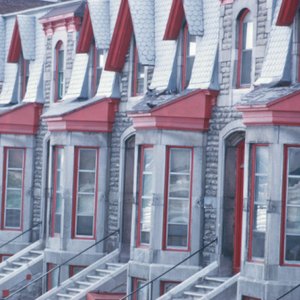
Changes in the economy and consumer trends influence the fluctuation in the housing market. Basic elements of supply and demand dictate the increase or decrease in pricing, even in real estate. It is more likely for a single-family home to increase in value than a townhouse. There are two main reasons: 1) demand for townhouses is less than it is for single-family homes and 2) financing for townhouses often more difficult to secure, thus reducing the pool of available buyers.
Property Value
The current market value of real estate is determined by how much a ready, willing and able buyer might pay for the property. Appraisers and other real estate professionals who estimate the market value of real property by averaging the adjusted sale prices of comparably prices properties that have recently been. When estimating the value of a townhouse, the ideal method would be to compare properties in the same neighborhood, with the same floor plans. and similar in age and condition.
Townhouse
Consumers sometimes confuse townhouses with condominiums. There are similarities, but also distinct physical and legal differences. A buyer of a condominium purchases the air space occupied by the unit and undivided interest of the common areas, while the buyer of the townhouse purchases the land on which the townhouse stands, and the building, yet shares ownership of the common areas. Townhouses share common walls with neighbors.
Confidence Index
The National Association of Realtors is the largest organization for real estate professionals. The association’s 2009 Confidence Index, a measurement of the current housing market’s strength and future expectations, were significantly less for townhouses than for single-family homes, measuring single-family homes at 41.1 percent, and condominiums and townhouses at 23 percent. Data for the index comes from random surveys of Realtors about existing and anticipated demand for housing supplies.
Townhouse Buyers
Ultimately, the existence of ready, willing and able buyers dictates whether the value for townhouses will increase. According to a 2010 article on the National Association of Realtor’s website, 77 percent of all buyers purchased a non-detached single home, while only 9 percent purchased a townhouse. According to an article posted by Economists’ Outlook, 7 percent of repeat buyers purchased a townhouse, with 79 percent purchasing a single-family home.
Lender Factor
Property value only increases when similar properties in the area actually sell for a higher amount. Even if there are “willing” buyers for townhouses, there may be fewer “able” buyers, compared to single-family houses. This is because it is more difficult to get a loan approved for a townhouse than for a single-family home, due to the additional documentation and information required for a townhouse. One reason is the homeowner’s association and common interest issues, such as shared walls and maintenance factors.
Exceptions
The increase of townhouse values might be greater than single-family homes in some parts of the country. For example, buyers in resort or retirement areas might find townhouses more desirable than single-family homes, thus increasing the demand and value.
References
- "Modern Real Estate Practice"; Fillmore Galaty, et al.; 2006
Writer Bio
Ann Johnson has been a freelance writer since 1995. She previously served as the editor of a community magazine in Southern California and was also an active real-estate agent, specializing in commercial and residential properties. She has a Bachelor of Arts in communications from California State University, Fullerton.

